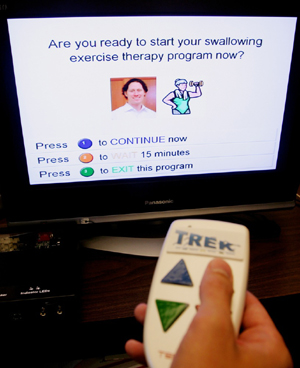 When it comes to computer technology, it's usually one size fits all, but a new research project in the Department of Computer and Information Science could change that notion.
When it comes to computer technology, it's usually one size fits all, but a new research project in the Department of Computer and Information Science could change that notion.
"We all have to adapt to what Microsoft puts out. Well, what we're doing is the anti-Microsoft. We're tailoring the technology to fit the individual," said Stephen Fickas, project leader and professor of computer and information science.
The idea is for an individual to be assessed and then prescribed the appropriate software to fit their needs. The results of this research would be significant for the more than one million U.S. adults diagnosed each year with cognitive disabilities, especially those with traumatic brain injuries, Alzheimer's disease and developmental disabilities.
After receiving a three-year grant of $799,999 in July from the National Science Foundation, Fickas and education professor McKay Sohlberg will lead an interdisciplinary team of computer science and education researchers. Sohlberg, who specializes in speech and language disorders, identifies the needs of specific groups with disabilities. The CIS researchers, including software engineers Jason Prideaux and Jim Allen, develop the software.
The goal of the project, which is called, "Software Pharmacies: Design of Personalized Assistive Devices for People with Cognitive Impairments," is twofold. First, the researchers are developing tools to help individuals overcome the isolation caused by their disabilities.
"We're trying to deliver the kind of interactive technology you and I use every day -- like email, Facebook and Twitter -- by attempting to build versions of these tools for this population," Fickas said.
They're also developing software to aid in-home rehabilitation and self-administered medication. After being released from the hospital, patients are sent home with a box that attaches to their TV. At the prescribed times each day, the TV turns on an interactive instructional program that reminds the patient it's time to take their medication or do their exercises. (
)
For his Ph.D. thesis Rik Lemoncello completed a study this spring of one prototype that helps stroke victims with rehab exercises. He found that when using the prototype, patients were significantly more likely (as much as 17 times) to complete the rehab program and do it correctly.

